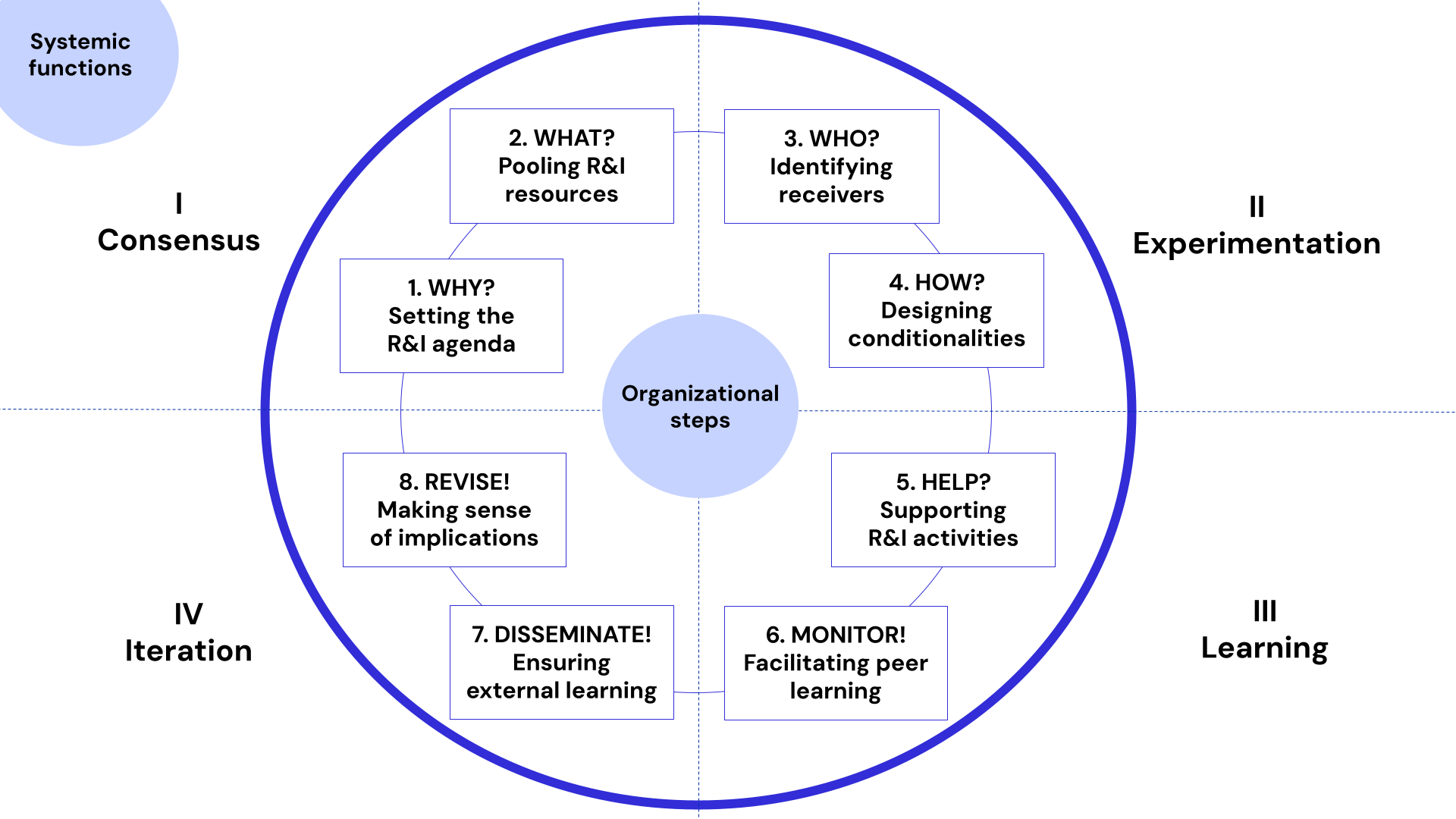Experimentalism is a ‘hidden third option’ that overcomes pre-existing dichotomies and can update the governance of R&I funding while steering it towards societal transformation.
How research and innovation funders can drive societal transformation in the 21st century
If Research & Innovation (R&I) funders are to succeed in their task, they must rethink the governance of R&I. R&I funding ensures that our societies generate new solutions to complex societal challenges. However, today, R&I funding is caught in a conundrum. On the one hand, R&I funders need to act fast in order to cope with urgent societal transformation. On the other hand, they must reckon with considerable political, organizational, and knowledge uncertainty for how to do so in practice.
The governance of R&I currently centres around an age-old tension between state-led and market-led approaches to collective problem-solving. In this report, we propose a resolution: experimentalism is a ‘hidden third option’ that overcomes pre-existing dichotomies and can update the governance of R&I funding while steering it towards societal transformation.
Experimentalism is an iterative governance process realized through four functions:
1. Consensus among key stakeholders around a framework goal;
2. Experimentation through substantial autonomy and clear accountability;
3. Peer-learning to ensure knowledge transfer;
4. Iteration based on emerging learnings.

This report presents a framework for experimentalist R&I that illustrates how the four functions above can be implemented within R&I funding processes. This is done in two ways. First, we identify eight steps of R&I funding processes — e.g., agenda-setting, identifying recipients, and seizing learnings from ongoing projects. Second, we propose concrete tools to illustrate how each step can be realized in an experimentalist fashion.
Experimentalism is an iterative process, not a blueprint. Thus, the tools proposed in this report should be treated as hypotheses to be tested within each organizational context, further developed if proven successful, and abandoned if they fit uneasily within the given context. We argue that by embracing iteration and collective learning, R&I funders can design new working and organizational practices and thus fulfil their potential as leaders of societal transformation.
Demos Helsinki produced this report on behalf of Formas, Sweden’s government research council for sustainable development.
For more information, you can contact:
Iacopo Gronchi
Senior Expert, Demos Helsinki
iacopo.gronchi@demoshelsinki.fi


The big “how”: New ways to govern industrial policy
Post
July 13, 2023
A Call for Humble Governments
Publication
September 17, 2021
The changing role of the state in the economy
Publication
April 26, 2023
Missions for governance: Unleashing missions beyond policy
Publication
October 26, 2022
An operative model for implementing missions
Publication
May 8, 2023
A new ethos for the civil service
Publication
June 14, 2023
New research aims to define what “successful AI” means in society (FORSEE)
Project
April 17, 2025